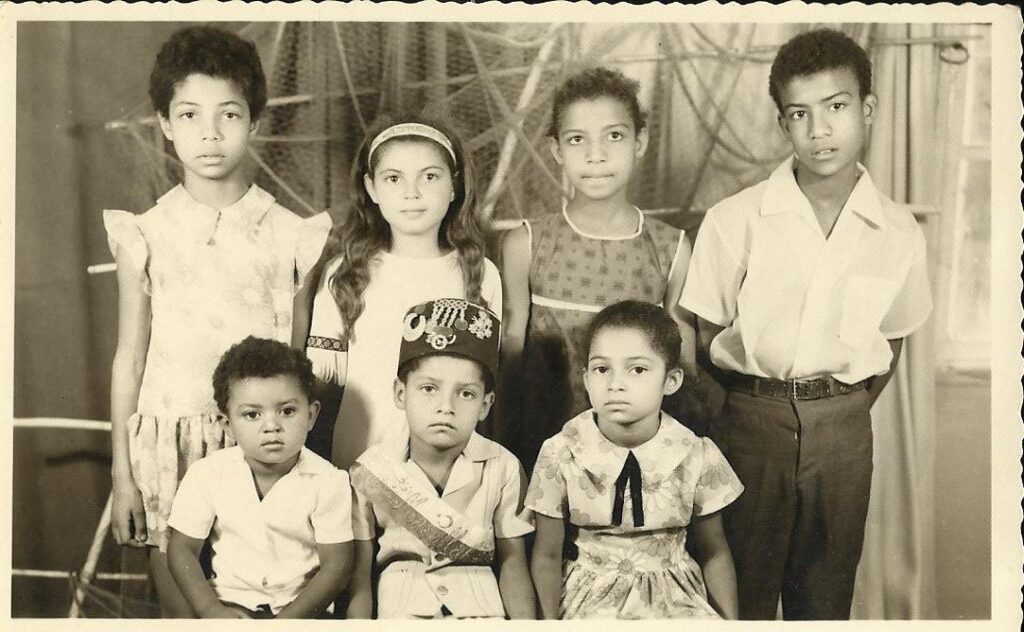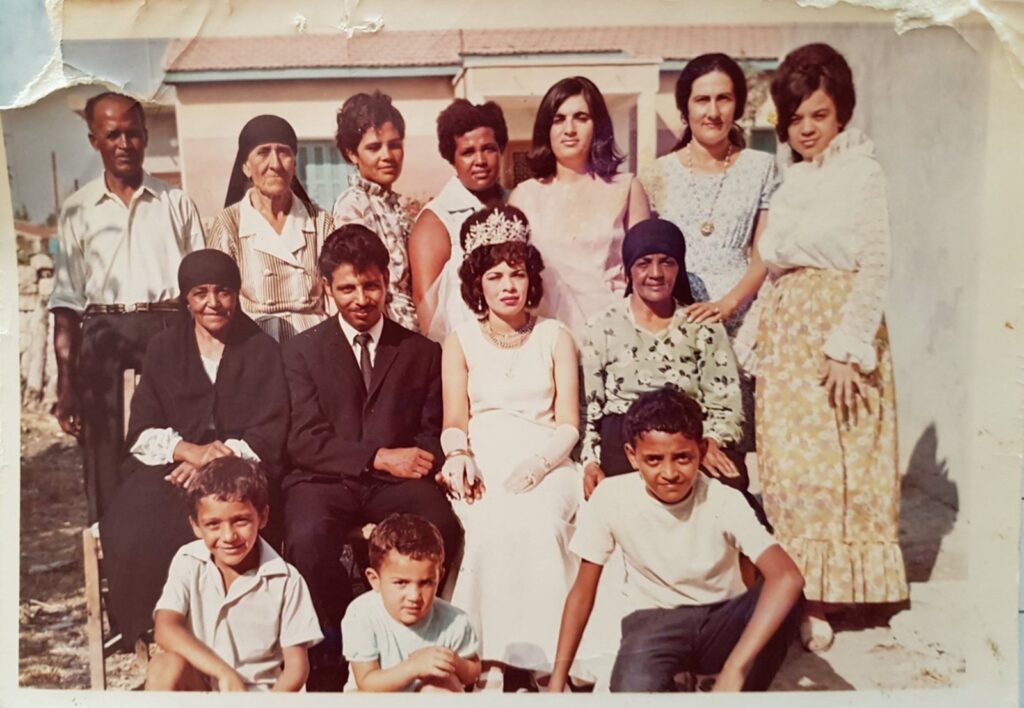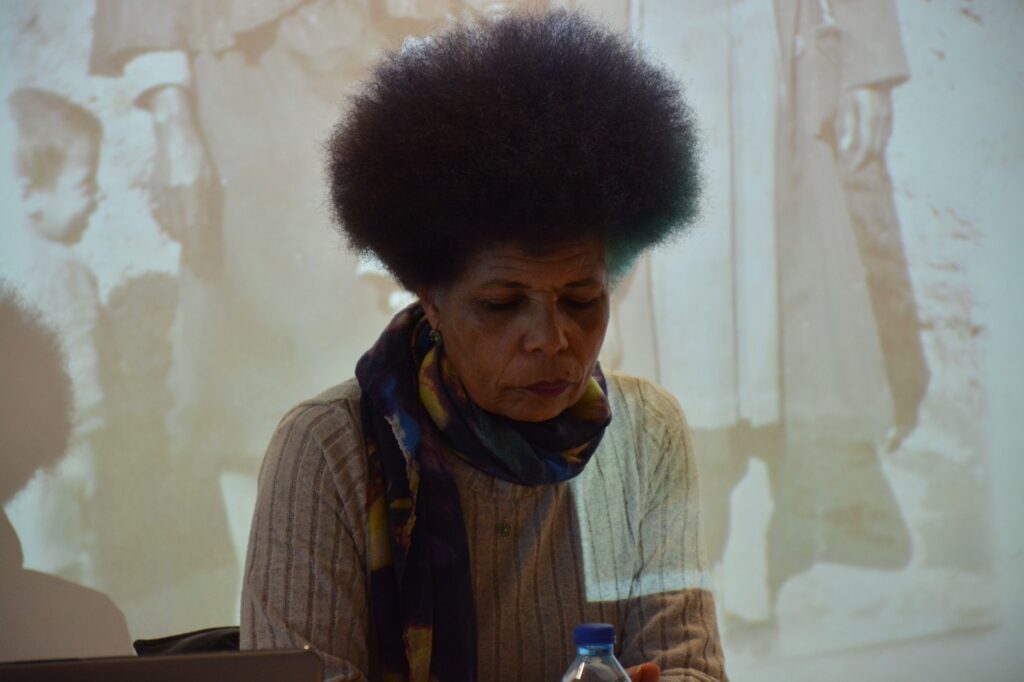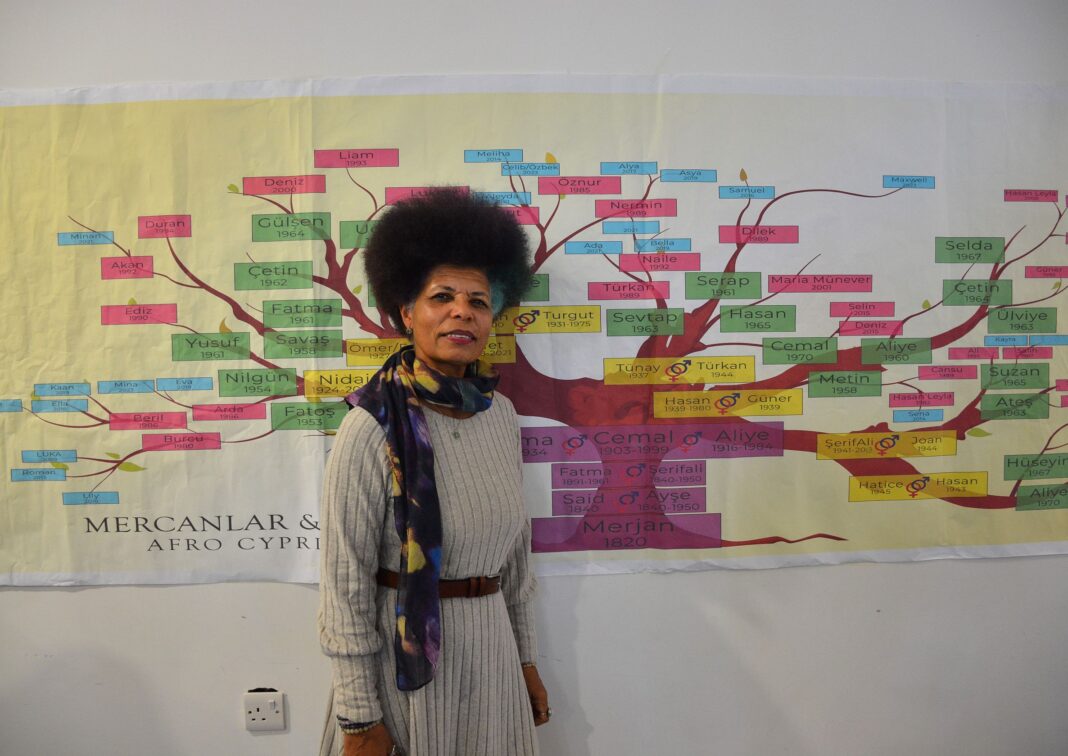Photograph by: Yakın Doğu Haber
By Amina Aminu Dankani
Serap Kanay, an Afro-Cypriot artist, social commentator, cultural analyst, and also a tour guide , has spent her life researching her unique identity, generations,and cultures. As a sixth-generation Cypriot with African roots, Serap Kanay has faced systematic challenges, cultural exclusion , through her research she embraced her heritage, and she has amplified the Afro Cypriot voice and also documented the Afro-Cypriot experience through her art and research since 1996.
From a rights-based perspective, this story sheds light on Serap Kanay’s fight for dignity, visibility, and equality which reflects the universal human rights like non discrimination and cultural heritage preservation., she shares her journey of self identity, struggle , and the ongoing fight for visibility in a society that often overlooks that Afro Cypriots do exist.

What Does It Mean to Be Afro-Cypriot?
“A lot of people ask the same question,” Kanay said when asked about her origins. “In my research, I found out that we are Cypriots, sixth to eighth generation in Cyprus. I am the sixth generation. Said Kanay.
Kanay’s research and confirmed by the DNA revealed African ancestry on both sides of her family. Her father’s lineage connects to various regions, including Sub-Saharan Africa, Sudan, Nigeria, Southern West Africa, and Congo, while her mother’s roots trace back to Odongola, Sudan—a connection confirmed by DNA testing. “My Cypriot roots make up 59.3%, and the rest is divided among those countries, said Kanay. Yet despite this rich lineage she has, her Cypriot is often questioned. This shows that the right to self determination and cultural determination and identity of Afro Cypriots must continuously assert.
Kanay’s childhood was marked by discrimination especially regarding her hair. Being Afro-Cypriot is a dynamic and evolving experience. She stated how it’s different now because there are students and other Africans here in Cyprus , she explained how growing up, within a minority, was a more isolated experience.”
The Challenges of Being Afro-Cypriot
Kanay reflected on the difficulties she faced as a child, especially regarding her hair. “People used to call us names and make fun of my hair. This reflects the intersectionality of racial and and gender discrimination and where her physical appearance becomes a site of oppression.
My childhood grievance has been about my hair because I am kind of light-skinned since I’m mixed. But more than the color, it was my hair. There were two other girls in my primary school class, but they were not treated the same way. Their hair could be plaited and come down, but mine never comes down”. Kanay said.
Her mother tried to help by cutting her hair short and styling it, but it wasn’t until she moved to England that Kanay found liberation. She felt free to do whatever she wanted with her hair. And Now, people are impressed by it, and although some still don’t appreciate it and despite the challenges, she does appreciate her hair and most importantly, she is at peace with it now.
Kanay highlighted how Afro-Cypriots are often perceived as outsiders. “The challenges we face here are that we are thought of as foreigners, not Cypriots. Which is a strong stereotype. People don’t expect Cypriots to be typically Black. They greet us with ‘hello’ instead of ‘merhaba’ because we look dark. Children sometimes make remarks about my hair in Turkish, thinking I don’t understand.”Kanay said. The lack of representation and knowledge of the Afro Cypriot in Cyprus undermines their right to recognition and participation in public life.
When asked how she embraces both her African and Cypriot heritage, Kanay described herself as a “modern traditionalist.” She explained that she respects and appreciates certain cultural traditions—particularly food and religious holidays like Bayrams. Having lived in England for 17 years, she blends traditional and modern cuisines, incorporating influences from diverse culinary cultures.
Beyond food and festivals, Kanay channels her heritage into her art and research. “Since 1996, I’ve been researching Afro-Cypriot issues and combining my research with my art through exhibitions, articles, and interviews like this one. That’s how I try to create awareness and help people understand who we are.” Said Kanay.

The Invisible Community
Kanay refers to Afro-Cypriots as “the most visible invisible community,” highlighting how their presence is acknowledged but their contributions are overlooked.While they are present, their contributions and history are often overlooked. “Through her work, she aim to make Afro-Cypriots more visible. Universities and researchers now include her work in their theses and academic papers. The more this happens, the more Afro-Cypriots become part of the conversation. She added.
She recounted a conversation during a university talk where a professor insisted there was no racism in Cyprus. “He gave an example of his Black friend, Ahmed, and said they grew up together and did everything together. But when I asked if he had ever talked to Ahmed about his experiences, he admitted he never had. Just because you grew up with someone doesn’t mean they weren’t treated differently.” Kanay explained.
Kanay’s creative work often centers on women’s lives, including their relationships with their hair. “Growing up, she had a hard time with her hair. So when collaborated with an academic, she decided to not only write about her own experiences but to include other women’s stories about their hair. Five women were interviewed in the article, women with different hair textures, and while none of them had kinky hair like Kanay, but they all had their own struggles.

Subtle Racism in Cyprus
Kanay observed that racism in Cyprus can be subtle but persistent. “I used to think it was more settled here compared to other European countries, but it’s not anymore. She said , depending on the circles you’re in, it can be upfront or more sinister. Negative stereotypes about African students make it difficult. Society puts them all in the same basket, assuming they’re drug dealers or troublemakers, instead of seeing them as individuals.” She added.
Kanay’s advice to young Afro-Cypriots is rooted in empowerment and self-awareness. “Be yourself and don’t shy away from your identity. Research your background to feel confident about who you are. Roots and lineage are important. It’s a wealth to have other cultures and mix them. Be open and proud of who you are.”
Serap Kanay’s journey as an Afro-Cypriot is a testament to resilience and pride in the face of challenges. Through her art, research, and advocacy, she continues to shine a light on the Afro-Cypriot experience, creating space for dialogue, understanding, and the celebration of multicultural identities. Her work is not just about preserving history but ensuring that future generations can proudly claim their identity without fear or prejudice.


 /<
/<



